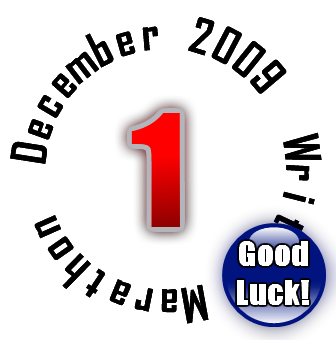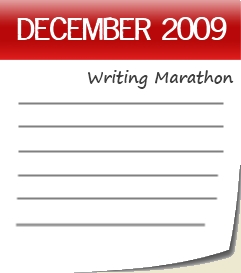I’m sure many of you have thought something along the lines of, “My gosh, there’s a lot of misinformation on the internet.” And you would be right.
I don’t know about you, but I feel like it’s too easy to get sucked into providing editorial on bad information to set the record straight. Of course, I’m speaking in generic terms here, but this is one of the reasons why a lot of people “puke content.” The more content that gets written about a particular subject, the more saturated the topic gets, the harder it is to discover the truth. Ultimately, this results in “louder” or “more forceful” content and angry emotions.
And that’s how internet trolls are born.
Sometimes I feel that professionals are “too” scared to set the record straight partially because they know the trap exists, but also because internet content is “stored.” Not every piece of internet content has a date stamp, so even if you provide content that corrects an error, there’s no way to keep track of “when” something was said. (Also, a lot of internet rumors start based on outdated content. So just because something has a date — even in the URL — it doesn’t necessarily mean that someone reads that content.) Unfortunately, silence isn’t always golden.
If you look at the trend of “too much content,” the reason why that’s a problem is not because of what you, yourself, are doing. It’s an aggregate trend that occurs because many professionals or amateurs like yourself are all doing the same thing at the same time.
There are a two other “trends” that concern me right now, too. I feel these are getting lost in the shuffle.
1. Too Much “Free” – My blog is a free, watered-down sample of some of my knowledge. I often cover extremely generic topics that are related to what I do, but I save the more “crunchy” bits for paid work or my day job. Why? Because this knowledge is what I get paid for. The free sample entices people to see what I’m about, without ramming self-promotion down someone’s throat.
I made the mistake of believing that my experiences were a good conversation starter to talk about my own fiction writing. Oh sure, I’d having interesting discussions with people about what I do – but in every case, no one offered to pay me or talk about my fiction writing. When they did, it was an “afterthought.” No one cared about my work, they cared about getting my knowledge for free.
Think about it this way: If everyone has a contest for a free book give-a-way, then that contest becomes the norm. It becomes “expected” for an author to provide that contest for a free book. If piracy and free content is left unchecked, then the reader (or consumer) expects things that normally have value to be “free.” Same goes for accessibility, which in a way, is “free” access; if you’re always online, people “expect” you to be there and answer your email immediately. For me, it was something along the lines of, “Well, Monica is always there to answer my questions. So I can ask her more questions, can’t I?”
Too much free devalues what a work or experience is worth; not enough free doesn’t allow readers (or consumers) to try before they buy. I believe that not enough people are concerned with giving things away for free (or taking them) as a whole. Just like the trend of puking content is a problem, so is “too much free.”
2. Plagiarizing “Free” Content – I have heard of several cases where writers are taking both non-fiction content (from Wikipedia and related sources) or fiction published online and offering it as paid work. One “author” took online published stories, published them as their own, and offered recommendations for themselves using fake sock puppet or alias accounts. Another, all-too-common practice is to copy/paste reference material from Wikipedia or other sources online and use it in articles, non-fiction or other published works. Recently, I heard of a fan offering free material under Creative Commons and a publisher picked it up, re-tooled it and offered it as a paid product.
While I believe that this is heinous for several reasons, this type of behavior originates from “too much free.” After all, if content is posted online, who really owns it? The person that created the content in the first place? The website that it’s located on?
The word “entitlement” comes into play here for two reasons: one, people expect content to be free for them and two, once they receive that content, they can simply do whatever they want with it and not expect some sort of recourse. They don’t seem to see the “aggregate” of thousands of other people believing the same way they do; they see it as “Well, it’s just me…what’s the harm?”
Note that popularity has more to do with the expectations of what should be free than the quality. YouTube! is a great example of this, because it continues to lose millions of dollars. (1) The moral to this story is that conventional wisdom still holds: There is no such thing as a free lunch.
One person plagiarizes and it effects the original author, publisher and the writer. A million people plagiarize and all of a sudden multiple businesses start going under because they can’t afford the lawsuits, damage to their reputation, etc. not to mention the loss of sales.
Same thing with piracy. One person “takes” an image from an artist that’s normally offered on commission, and that artist is out the amount they charge. Add several people to that equation and now the artist is out more than just money lost from those taken images; he’s unable to “sell” artwork to new, more viable customers because people just simply take from him.
These questions are currently being explored more in depth through changes in copyright and internet law. I believe that these changes won’t be received well because it’s a little like putting a genie back into the bottle, which is why education about the negative effects is really important. Just like piracy and plagiarism is “achieved” on a one-on-one basis, people need to remove their blinders about the negative effects this type of behavior causes. After all, you wouldn’t expect a doctor to provide care for you for free — why would you demand an artist or writer do the same?
Regardless, these trends are affecting not only what I read and write online, but how I pursue my career objectives and what I recommend other people to write as well.
 Are you ready for a marathon? I am!
Are you ready for a marathon? I am!
 In my previous post entitled
In my previous post entitled  I know that many of you might be writing for
I know that many of you might be writing for